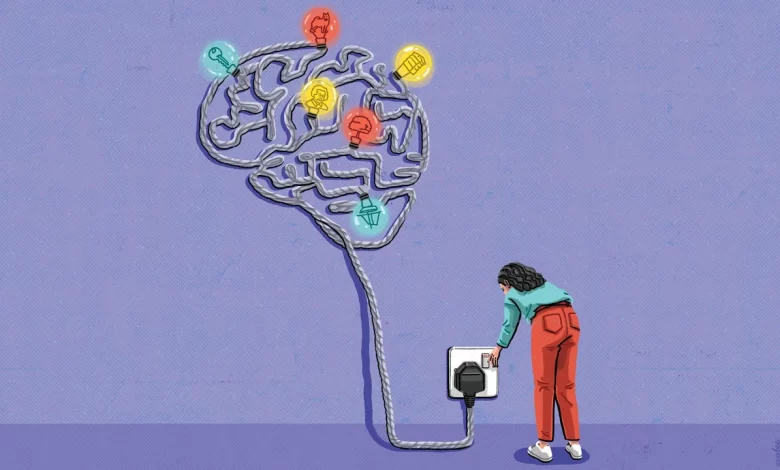8 Neuroscientist-Recommended Habits to Improve Your Memory Fast

Memory is one of the most powerful assets of the human brain. It shapes how we learn, connect with others, and make decisions. Yet in our fast-paced, distraction-filled world, many people struggle with forgetfulness, poor recall, or mental fatigue. The good news? Neuroscience research shows that memory is not a fixed ability. With the right habits, you can sharpen recall, strengthen long-term retention, and improve learning speed—often faster than you think.
8 Neuroscientist Habits to Improve Your Memory Fast
Here, we explore eight neuroscientist-recommended habits that can help you improve your memory quickly and effectively. Each habit is grounded in scientific research and practical enough to incorporate into your daily routine.

1. Prioritize Quality Sleep for Memory Consolidation
If you’ve ever crammed all night for an exam and then blanked out during the test, you’ve experienced firsthand the critical role sleep plays in memory. Neuroscientists have repeatedly confirmed that sleep is essential for memory consolidation, the process where short-term memories are transferred into long-term storage.
- Why it matters: During deep sleep, the brain clears out toxins, strengthens neural pathways, and organizes information learned throughout the day. Without enough rest, your brain struggles to store and retrieve information.
- The science: A landmark study published in Nature Neuroscience found that sleep after learning can double memory performance compared to staying awake.
- Quick tips to improve sleep for better memory:
- Aim for 7–9 hours per night, depending on your body’s needs.
- Stick to a consistent sleep schedule (same bedtime and wake-up time daily).
- Reduce exposure to blue light from phones and screens at least an hour before bedtime.
- Practice relaxing pre-sleep rituals such as meditation, light stretching, or reading.
Getting enough quality sleep is like pressing the “save” button for your brain. If you want fast improvements in memory, this is the first place to start.
2. Practice Regular Physical Exercise
Neuroscientists often call exercise “Miracle-Gro for the brain”—and for good reason. Physical activity doesn’t just keep your body fit; it also stimulates brain plasticity and boosts memory.
- Why it matters: Exercise increases blood flow to the brain, delivering oxygen and nutrients that support neuron health. It also promotes the release of brain-derived neurotrophic factor (BDNF), a protein that strengthens connections between brain cells.
- The science: Research from Harvard Medical School shows that aerobic exercise, in particular, improves memory and learning. A 2019 study in Scientific Reports found that just 10 minutes of light exercise can enhance communication between brain regions involved in memory.
- Quick exercise habits for memory boost:
- Aim for 150 minutes of moderate-intensity exercise per week (e.g., brisk walking, cycling, swimming).
- Try high-intensity interval training (HIIT) a few times per week—it has been linked to faster improvements in brain function.
- Even short movement breaks—like stretching or a 5-minute walk—can improve focus and recall.
Exercise doesn’t just build muscles; it builds memories. Making it a daily habit can supercharge your brain in record time.
3. Use the Power of Repetition and Spaced Learning
One of the most scientifically proven techniques for memory improvement is spaced repetition. This strategy leverages how the brain naturally strengthens memories when information is revisited at intervals.
- Why it matters: The brain is wired to forget. Without reinforcement, up to 80% of new information fades within a week. Spaced learning interrupts this “forgetting curve,” making recall stronger and longer lasting.
- The science: German psychologist Hermann Ebbinghaus first described the forgetting curve in the 19th century. Modern neuroscience has confirmed that reviewing material at strategic intervals is one of the fastest ways to cement knowledge.
- Practical applications:
- Use flashcards (digital tools like Anki or Quizlet are designed for spaced repetition).
- Review new information within 24 hours, again within a week, and then at increasing intervals.
- For work or school, break large study sessions into shorter, repeated reviews instead of cramming.
This method isn’t just for students. Professionals, language learners, or anyone wanting to remember names, facts, or skills can benefit from spaced repetition almost immediately.
4. Engage in Mindful Meditation
Stress and distraction are memory’s worst enemies. Chronic stress elevates cortisol levels, which can damage the hippocampus—the brain’s primary memory center. Fortunately, neuroscientists have found that mindfulness meditation can counteract these effects and improve memory.
- Why it matters: Meditation helps the brain focus, reduces stress, and increases gray matter density in areas linked to learning and memory.
- The science: A study from Harvard University revealed that just 8 weeks of mindfulness meditation can increase the size of the hippocampus. Another study in Frontiers in Psychology showed improved working memory among participants who meditated regularly.
- Simple ways to get started:
- Begin with 5–10 minutes daily, focusing on your breath or a mantra.
- Use guided meditation apps like Headspace or Calm.
- Try mindful walking, where you pay full attention to each step and sensation.
The beauty of meditation is that even a few minutes daily can make your brain sharper and calmer, leading to quick improvements in recall and focus.
5. Challenge Your Brain with Cognitive Training
The brain is like a muscle—the more you challenge it, the stronger it gets. Neuroscientists emphasize that engaging in mentally stimulating activities can enhance neuroplasticity, the brain’s ability to form new connections.
- Why it matters: When you push your brain beyond routine tasks, you activate different neural pathways, strengthening memory and problem-solving skills.
- The science: Studies in The Journal of Neuroscience found that cognitive training can improve working memory and executive function in adults, even in older populations.
- Effective brain-challenging activities:
- Learn a new skill, such as playing an instrument or speaking a foreign language.
- Try puzzles and strategy games (Sudoku, chess, or memory card games).
- Use brain-training apps like Lumosity or Elevate—but combine them with real-world learning for best results.
- Switch up your routine: take a new route to work, cook a new recipe, or brush your teeth with your non-dominant hand.
By consistently challenging your brain, you build cognitive reserves that strengthen both short-term and long-term memory.
6. Maintain a Brain-Boosting Diet
Food isn’t just fuel for your body—it’s fuel for your brain. Neuroscientists highlight the importance of nutrition in supporting memory, attention, and overall cognitive health.
- Why it matters: The brain consumes about 20% of your body’s energy, meaning the foods you eat have a direct impact on memory function. Nutrient-rich diets help protect neurons from oxidative stress and inflammation.
- The science: Diets rich in omega-3 fatty acids, antioxidants, and vitamins have been linked to stronger memory performance. The Mediterranean diet, in particular, has been shown in studies (published in Neurology) to slow cognitive decline.
- Memory-enhancing foods:
- Fatty fish (salmon, mackerel, sardines) – rich in omega-3s for brain cell communication.
- Berries – packed with antioxidants that protect neurons.
- Leafy greens (spinach, kale, broccoli) – high in vitamin K and folate for cognitive function.
- Nuts and seeds – provide vitamin E, which protects against age-related memory decline.
- Dark chocolate – flavonoids improve blood flow to the brain.
- What to avoid: Excess sugar, processed foods, and trans fats, all of which impair memory and slow cognitive processing.
Adopting a brain-boosting diet provides both immediate and long-term benefits for memory performance.
7. Strengthen Social Connections
Surprisingly, one of the most effective memory-boosting habits isn’t solo at all—it’s social. Neuroscientists have discovered that meaningful social interaction stimulates brain regions involved in memory and emotional regulation.
- Why it matters: Conversations challenge the brain to recall information, adapt to new topics, and process emotions—all of which strengthen cognitive function.
- The science: Research from the University of Michigan found that as little as 10 minutes of daily social interaction can improve memory and mental performance. Loneliness and isolation, on the other hand, are linked to accelerated cognitive decline.
- Ways to increase social engagement:
- Schedule regular meetups with friends or family.
- Join clubs, sports teams, or volunteer organizations.
- Engage in intellectually stimulating conversations, not just small talk.
- Limit excessive social media scrolling and prioritize real connections.
Your relationships aren’t just good for your heart—they’re good for your brain, too. Building strong social ties can give your memory a significant boost.
8. Manage Stress and Practice Relaxation Techniques
While short bursts of stress can sharpen focus, chronic stress impairs memory by damaging the hippocampus and reducing neurogenesis (the birth of new brain cells). Neuroscientists stress the importance of active stress management for maintaining sharp memory.
- Why it matters: High stress leads to forgetfulness, poor concentration, and difficulty retrieving stored memories.
- The science: A study in PNAS found that chronic stress can shrink the hippocampus and impair working memory. Conversely, relaxation techniques have been shown to restore cognitive balance.
- Effective stress-management strategies:
- Practice deep breathing exercises (inhale for 4 seconds, hold for 4, exhale for 6).
- Engage in yoga or tai chi, which combine physical movement with mindfulness.
- Keep a gratitude journal, which reduces stress and enhances positive emotions.
- Take short breaks during work to avoid mental fatigue.
By keeping stress in check, you allow your brain to focus on what matters—retaining and recalling information more effectively.
Putting It All Together: A Daily Routine for Fast Memory Gains
Improving your memory doesn’t require drastic changes. By incorporating these eight habits, you can build a daily routine that optimizes brain function:
- Morning: Start with 10 minutes of meditation, followed by a healthy breakfast rich in brain foods.
- Daytime: Include light exercise or walking breaks, practice spaced learning for new material, and stay socially engaged.
- Evening: Wind down with stress-reducing activities, limit screen time, and prepare for quality sleep.
Final Thoughts
Memory is not a fixed trait—it’s a skill you can train and improve. Neuroscientists emphasize that small, consistent changes lead to powerful results. By prioritizing sleep, exercise, repetition, meditation, cognitive training, nutrition, social interaction, and stress management, you’ll notice sharper recall and better focus in weeks, not years.
The best part? These habits don’t just improve memory fast—they also enhance your overall brain health, resilience, and longevity. Your brain is your most valuable asset; treat it well, and it will serve you brilliantly for a lifetime.




